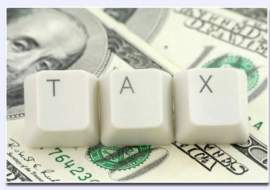
All About Tax Deductions

Tax Deductions Background
A tax deduction reduces a taxpayer's income which in turn effectively reduces their percentage owed to the federal government. All individuals are placed in a tax bracket; the lower the income the lower the percentage the individual will pay in taxes. A tax deduction is awarded to individuals or businesses who have spent a considerable amount of their income on educational expenses, interest payments associated with mortgage or equity loans, charitable donations etc. Tax deductions have the ability to knock an individuals income into a lower tax bracket.
Tax Exempt
Tax exemptions are granted by the federal government to certain individuals, income classifications, properties, assets, and organizations. A tax exempt status allows the entity to fore go a certain tax. The exemptions, however, are only available to individuals or entities who partake in specific programs or meet the specific requirements established by the appropriate government agency. That being said, tax exemptions are typically given to charitable organizations or various government agencies. The individuals who receive exemptions are typically veterans or religious clergymen.
Tax Relief
Tax relief is offered to individuals who have back taxes or who have failed to properly file their taxes. The federal government's tax levy is collected on April following the end of the taxable year. In addition to the time restraint, each form must be properly filed and the calculations associated must be accurate. Problems or inaccuracies can result in fines or forced interest payments. When these situations arise they must be immediately quelled or else the fees associated will exponentially grow.
Tax Cut
A tax cut is a piece of legislation that arises from a political party's economic philosophy. Tax cuts lower the tax rates associated with the federal income tax levy. If an individual is forced to pay 28% of their income one term, a tax cut will decrease their total percentage owed. Tax cuts are instituted because they increase the net income of the general population. The increased liquidity and income offered by the tax cut is thought to entice investment and consumption--both essential variables to drive an economy.
Tax Rebate
A tax rebate is a refund or cash amount awarded to an individual or organization. Entities who receive tax rebates are literally paid, either in check form or through direct deposit by the United States Federal Government. Tax rebates stem from the individuals wages being withheld throughout the year. During a pay cycle the government takes money as a form of tax; when the money withheld during the year exceeds the levy owed on tax day, a tax rebate will be distributed.
Tax Refunds
Tax refunds are monies awarded to entities who have paid too much tax during the taxable year. In 2008, over 75% of tax returns were attached with a tax refund check. The average refund was worse in the neighborhood of $2,000. Tax refunds increase an individuals income, liquidity and ability to save or consume. The money, in theory, is pumped back into the economy in the form of consumption or investment.
NEXT: An Overview on Tax Deductions





















